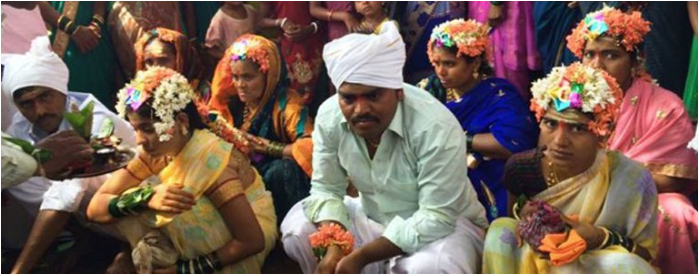
I’ve heard established physiotherapist colleagues say “volunteering overseas sounds great, but I don’t think it’s for me”. New physiotherapists have told me “I’d like to volunteer overseas someday, but I want to focus on my career in Canada first”.
Working full-time in global health certainly isn’t for everyone, but I truly believe that one single trip abroad can profoundly benefit one’s physiotherapy career in Canada.
In the fall of 2015 I was craving an adventure, so paused my Canadian physiotherapy career to return to the “small” town (population: 60,000) of Koppal in Southern India to volunteer for 5-months with Samuha Samarthya, an NGO dedicated to working with people with disabilities. I had volunteered here twice before in a clinical role, but this trip’s focus was on improving Samarthya’s sustainability strategies and facilitating the growth of their programs. I was anxious and excited to coordinate this project and try my hand at the management side of physiotherapy.
Five days prior to take off, a non-conventional twist of fate resulted in the decision to open my own clinic upon returning to Canada. I was to plan most of the start-up while I was in Koppal. Wait… What?!
I was concerned about managing these two equally big projects but decided to try it out (why not?), as I remembered a quote from Robin Sharma encouraging that you “push yourself to the edge of your limits; that’s how they expand”. I had an inkling that I would probably learn a lesson or two while jumping into the massive ocean of an experience but didn’t realize how many life lessons, new skills, failures, and Aha! Moments that would hit me like an intense flurry of spicy curry. These seemingly different projects – volunteering to improve sustainability of a rural Indian NGO, and opening a private pediatric scoliosis clinic in Canada – were more interconnected than I could have imagined.
In short, here are the top 5 non-physiotherapy skills that I learned over the past 6 months abroad that will unquestionably contribute to my physiotherapy career in Canada:
1) When choosing your team, trust your gut: After I put out a call for volunteers on facebook, I was overwhelmed by the interest. As the NGO was a very close-knit team, we had to ensure that each volunteer would be adaptable and fit the culture of Samuha well. I spoke to many people on the phone and Skype, and I learned that despite their skill sets on paper, I needed to trust that initial gut feeling. The resulting 15 volunteers absolutely blew everyone away with their dedication and motivation to help. This strengthened my confidence in my intuition, and I will feel more assured in choosing my team in the future. Sometimes we don’t always have full control over our professional team as Canadian physios, but we do get to choose our personal team – accountants, financial advisors, professional connections, and friends – gut instinct rules and will always lead to the best results.
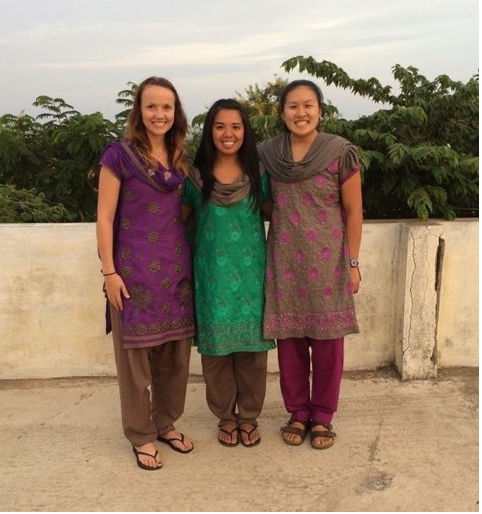
Julie Alexander (Pediatric PT), Andrea, and Jen Tam (Neuro PT)
2) I downloaded Michael Gerber’s E-Myth Revisited onto my trusty Kindle in preparation for opening my clinic, and learned that a MUST of running an organization is to have the organization run independent of any key individual decision-makers to avoid information bottlenecks. In order to this, one must work ON the business, rather than IN it. Focus must be placed on clarifying steps in any process and minimizing the need for human subjective decision-making. I noted that often at Samarthya, these sorts of things weren’t clear, therefore it seemed like some people spent the better parts of their day waiting for other staff to make decisions or clarifying who’s responsibility it was to complete a task. Because we observed this, most of the volunteers efforts went into establishing exactly how to go about ordering wheelchairs, referring a patient to another program, or planning a 2-month inpatient stay at the Spinal Cord Injury Center. I learned the importance of documenting every process in any new business. Here in Canada, we run very ‘busy’ lives so learning to systematize and automate as many processes will be crucial to freeing up our time to do more of the things we love.
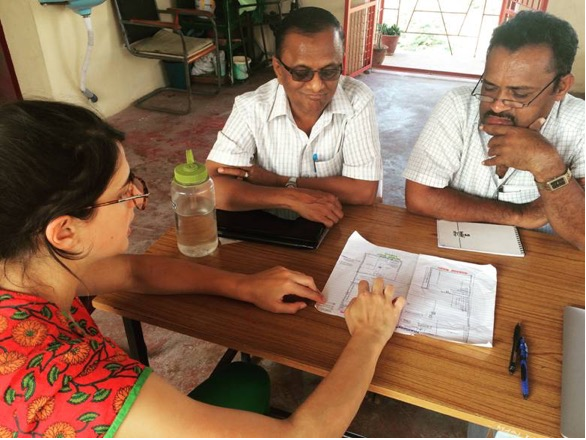
Malena from the BCIT Prosthetics & Orthotics Team discussing flow in the workshop to maximize efficiency
3) Samarthya had four clinical sites, two of which were 200kms from the others. I walked the line (sometimes falling off either side) of learning how to provide support (often from a distance) to staff and volunteers without micromanaging according to each person’s level of need. As volunteers flowed through for 4-6 weeks at a time, I became the 5-month constant, clarifying logistics of travel, accommodation, work tasks, and cultural integration for the volunteers, while continuing planning with staff for tightening up program operations. I was challenged with electricity interruptions, spotty internet, language barrier, and opposing cultural views on the concept of time. I learned that some staff or volunteers needed more guidance, while others thrived on autonomy and independence. At some point in our Canadian careers, we will be guiding students, colleagues, or other staff and will be responsible for facilitating their success so it’s important to be aware of each person’s individual needs.
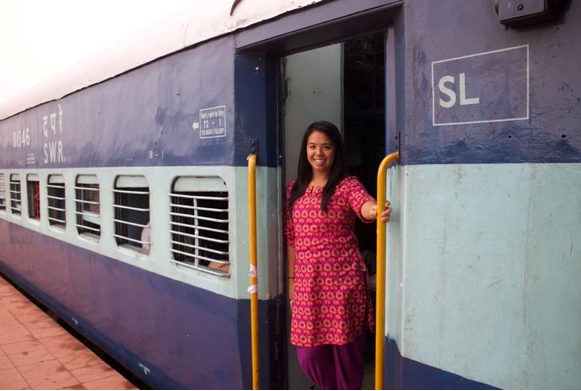
I took countless train, bus, jeep, motorcycle, and auto rickshaw rides to meet the teams in various locations.
4) It’s okay to fail, but learn to do it fast! Prior to India, I was a perfectionist, agonizing over small details until it was just right before launching anything. India changed all that. There it was common that things didn’t play out as planned. It was almost impossible to align everything perfectly, and even if things did align, the situation often flipped so that those initial decisions became irrelevant. I learned that the trick is to quickly recognize when something isn’t working, accept it, and change the approach to optimize it.
At the Spinal Cord Injury Centre, clients were passive in their treatment, waiting until the therapist came around every 10 minutes to tell them what to do. We tried various approaches to empower the clients: first we tried written exercise schedules (but learned that some of the patients were illiterate), then visual boards with exercise images (but they found it challenging to wheel over to see the boards), then finally patients starting taking photos of the exercise images on their mobiles to have them handy and to access them when they went home. Starting a clinic has presented equal trials and failures, but because of my experience in India, I am learning to adapt quickly. Whether it’s trying a new manual therapy technique with a patient or rolling out a new program at your workplace here in Canada, the most important thing is to try it and analyze it, and not get hung up on small failures along the way.
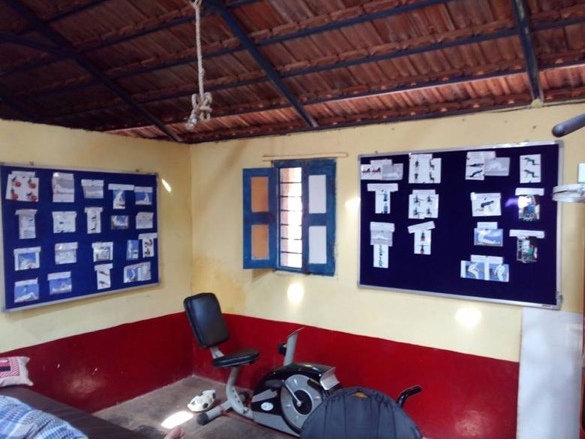
The visual exercise boards that patients could take photos of, created by volunteer PT Sarah Monsees.
5) Be real. Professionalism is important on so many levels, but sometimes breaking down that barrier and connecting to fellow staff and patients is very important. In Koppal, I attended a wedding, a baby-naming ceremony, and was indulged in savoury, spicy food at staff’s houses. We established great friendships, and I found that my work-related suggestions were much more well-received due to the trust that had formed. Abroad or locally, it’s important to be yourself, and care for others on a personal level.
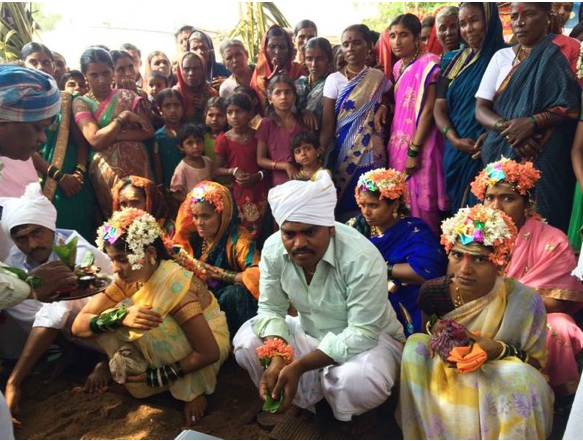
Channappa (center in light green shirt) is one of the new therapists at the Spinal Cord Rehab Centre. We were lucky to celebrate his wedding day with him.
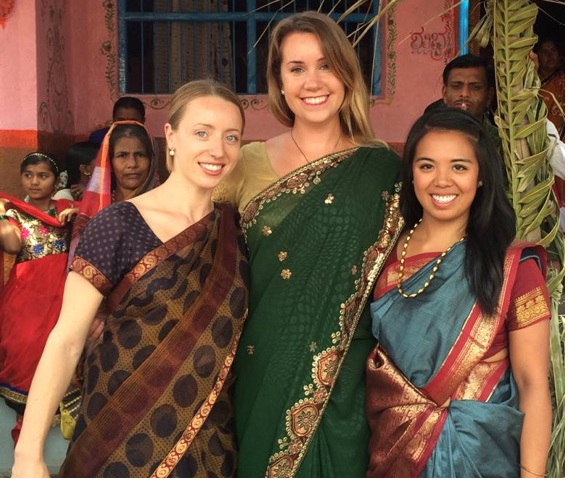
Physio student Mary-Anne Levson, neuro PT Juliet Grundmanis, and I in traditional saris for the wedding
All of these lessons – trusting my intuition, working equally on my business as I do on my technical skills, providing the appropriate support to co-workers, failing fast, and being real – will undoubtedly stay with me throughout my career, particularly as I launch my new clinic. As much as I intended to make change at Samarthya, my time there in fact changed me tremendously – I have grown in countless ways personally and professionally from this volunteer trip abroad.

If you are NOT a Healthcare Professional but have a question? Click here >
Free Shipping
On orders over $250
Learn More>
Get Expert Advice
For Healthcare Professionals only
1-800-561-0310
Contact us >
Technical Support
Does your equipment need
maintenance or calibration?
Contact us >
Finance Your Success
Leasing equipment is simple?
Learn more >
Customer Service Hours: Monday to Friday from 8:00 AM to 5:00 PM EST
Fax: 1-800-561-0349
Mailing Address: 170 Bombardier, Unit 1, Gatineau, QC J8R 0G5